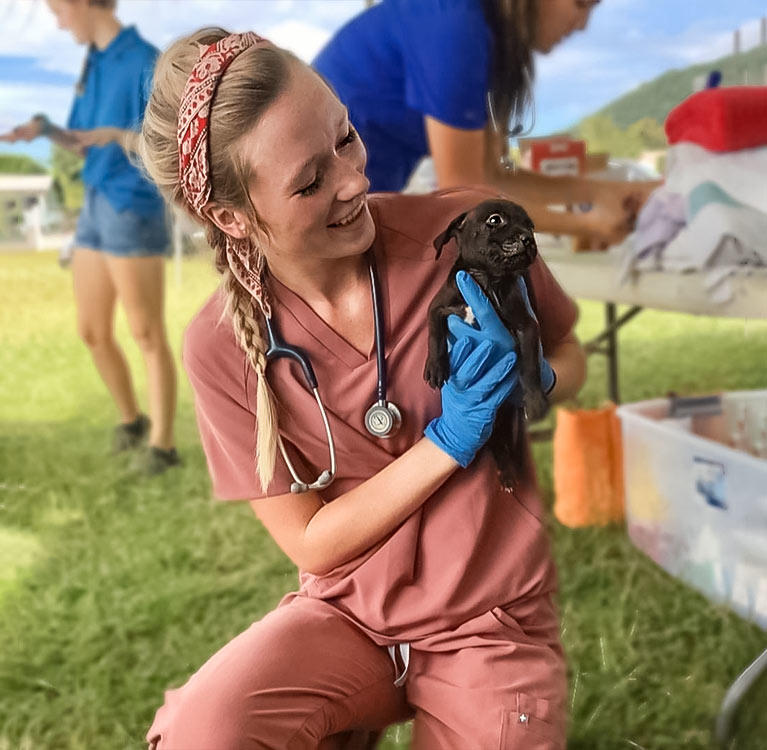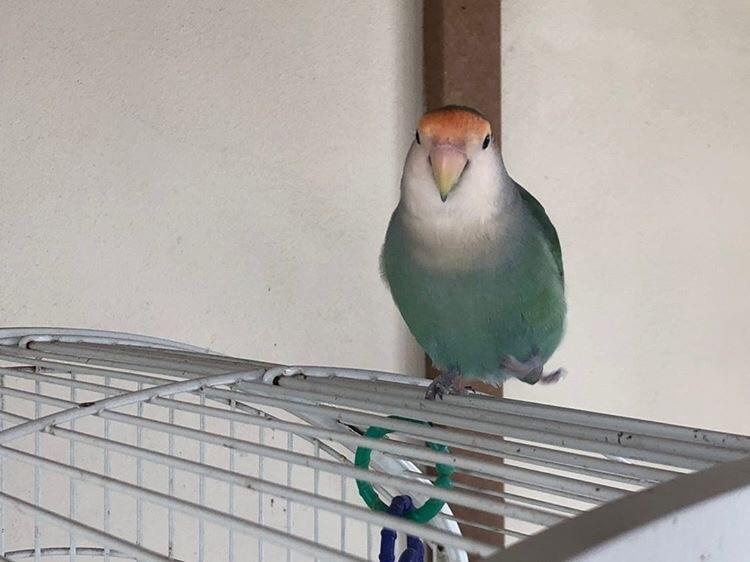As you begin thinking about earning a Doctor of Veterinary Medicine (DVM) degree and perhaps even attending Ross University School of Veterinary Medicine (Ross Vet), there are many factors to consider, including the cost of education for a veterinarian and paying for it. As you consider how much is veterinary school, we'll provide a few cost-effective solutions that could help.
The average cost of vet school is affected by a number of circumstances that fluctuate on a case-by-case basis. Vet school tuition varies depending upon whether you attend a private or a public school and whether you have residency in that state. In the United States, there are 32 accredited veterinary schools, a relatively small number that creates competition among applicants as well as for lower in-state tuition spots, state-specific scholarships, and financial aid.
Veterinary school costs also depend on other factors that you will want to think about when comparing the average cost of vet school. These factors may include where you live and the local cost of living, if you can work during school to cover basic expenses, and scholarships, grants, and loans you may receive to offset some of your tuition costs.
To help you better understand vet school tuition costs, the American Association of Veterinary Medical Colleges Cost Comparison tool tracks tuition and living expenses for resident and nonresident students at all accredited veterinary schools in the United States. You may be surprised to see how broad the range of tuition can be.
So, how much does veterinary school cost? We break down some additional considerations when planning where you wish to attend:
- Public in-state education vs. private institution
- Relocation and moving costs
- Housing and utilities
- Transportation
- Food and basic living expenses
- Education fees
- Exam fees
While vet school tuition may seem intimidating, it shouldn’t be your only consideration when deciding to pursue your dreams of veterinary medicine. Many other factors should go into choosing your veterinary school. Is the DVM program a traditional 4-year program or is it accelerated? Do you want to be close to home, live somewhere new, or is the location not a deciding factor for you? Is the focus of the school—research programs, emphasis on production medicine, a flexible curriculum, etc.—important to you? Is instruction primarily lecture or problem-based learning? Are clinical rotations onsite or will you be sent to local veterinary clinics for clinical training?
ROSS VET SCHOOL TUITION
We recognize that Ross Vet is a great place and offers a mid-range tuition rate when compared to the rates of private and out-of-state public veterinary schools in the United States. We also understand that your education is a major financial investment and we want you to know that there are helpful options such as grants, loans, and scholarships.
To get started, we encourage you to review Ross Vet school tuition and fees for U.S. pricing and non-U.S. pricing for our Canadian and International Student Pricing Program. Your cost of living expenses and variable expenses are separate from this cost.
Pursue Your Passion
While tuition may have you asking yourself, “how much is vet school, again?” finances shouldn’t come between you and your educational opportunity of a lifetime. When looking for ways to pay for vet school, help is available. Typically, students finance the cost of their veterinary school education by combining family resources, student loans from governmental and other agencies, and private sources.
- Financial aid is available for Ross Vet school tuition for students who apply and qualify. The Free Application for Federal Student Aid® (FAFSA®) funding is available for U.S. attendees and filing the FAFSA is the only way to receive federal financial aid for college, such as federal grants and loans.
- Canadian citizens may be eligible for loans through the Canadian government and/or private loan programs.
- Beyond financial aid, scholarships and grants for those who apply and qualify are other paths to pursue to help pay for your veterinary education. Unlike many other financial aid options, you do not need to pay scholarships back. Scholarships for veterinary school come from a variety of sources. Some are available through Ross Vet.
- Consider special loan repayment programs. Upon graduation, veterinarians may agree to the terms of unique loan repayment opportunities, such as the Veterinary Medical Loan Repayment Program (VMLRP) offered through the U.S. Department of Agriculture.
Although the average cost of vet school may be eye-opening, if you’re passionate about entering the world of veterinary medicine, don’t let financial obstacles stop you from applying to Ross Vet. We can help you put a plan in place to make your veterinary dreams a reality.
Apply for admission to Ross Vet today.
Related Links:







